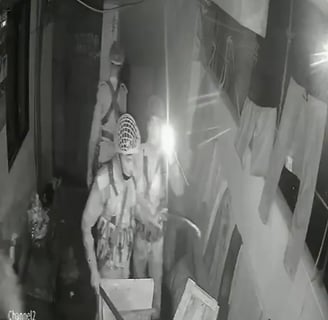Security Forces Face Backlash After Crackdown on Hindu Community, 200+ Missing
Blog post description.
1/29/20252 min read


On August 5, 2024, Bangladesh witnessed a distressing episode reminiscent of the 1946 Noakhali riots, as Islamist mobs attacked Hindu homes, businesses, and temples across the nation. The violence erupted following the resignation of Prime Minister Sheikh Hasina, leading to widespread chaos and insecurity among minority communities. In Bagerhat, the Chakraborty family's residence was invaded, resulting in the tragic death of the family patriarch and severe injuries to other members. This incident mirrors the horrors of the 1946 Noakhali riots, where anti-Hindu violence led to massacres, forced conversions, and mass displacements. The recent attacks have not been confined to a single region. Reports indicate that Hindu houses, businesses, and temples have been systematically targeted, with 200-300 properties damaged and 15-20 temples attacked. Up to 40 individuals have been injured in these assaults. The Hindu community, historically seen as supporters of Hasina's party, now faces heightened vulnerability. Activists and citizens are urging the interim government, led by Nobel laureate Muhammad Yunus, to address the violence. The Indian government has also formed a committee to monitor the situation. Reflecting on the 1946 Noakhali riots, it's evident that the underlying communal tensions have persisted over the decades. The 1946 riots were marked by organized massacres, rapes, abductions, and forced conversions, leading to mass migrations and a deep-seated sense of insecurity among Hindus in the region. The current wave of violence has prompted protests within Bangladesh. Hundreds of Bangladeshi Hindus took to the streets of Dhaka, chanting slogans and demanding protection for minorities. The Bangladesh Hindu Buddhist Christian Unity Council reported that from August 4 to August 20, a total of 2,010 incidents of attacks on minorities took place across the country. The parallels between the events of 1946 and 2024 are stark and troubling. Both periods saw politically charged environments where communal tensions escalated into widespread violence against minority communities. The recurrence of such incidents underscores the need for systemic changes to protect vulnerable populations and promote communal harmony. As Bangladesh navigates this tumultuous period, the international community watches closely, hoping for swift action to restore peace and ensure the safety of all its citizens, regardless of their religious affiliations.
Security Forces Face Backlash After Crackdown on Hindu Community, 200+ Missing
